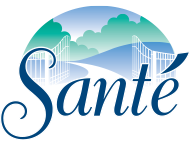As a physician, you know that addiction can affect anyone. This powerful, chronic brain disease doesn’t discriminate based on age, race, socioeconomic status, education, or occupation. Of course, as a healthcare professional, you face intense scrutiny and penalty if others discover your addiction. This is why you need specialized addiction treatment for physicians, with all of the safety and confidentiality only this type of program provides.
Addiction Treatment for Physicians

Despite being a doctor, you find yourself susceptible to anxiety, stress, trauma, illness, depression, and addiction. Your humanity helps you treat your patients well, just as it makes you vulnerable to problems like those you now face. Your career is intensely stressful, possibly being part of your reasons for turning to substance abuse.
However, in going through rehab, you face problems in your career if you don’t find the right addiction treatment for physicians. You need a safe place to overcome your addiction so you can return to your work and healthier home life. Only in dedicated addiction treatment for physicians is that safety, confidentiality, and lasting recovery possible.
In addiction treatment for physicians, nurses, and other healthcare professionals, you find yourself among peers from all over the country. This proximity enables new bonds of support where you have long suffered isolation. Together, you recover, restore your lives, and prevent future relapse.
Why Physician-Specific Treatment Is Important
In 1973, a paper called “The Sick Physician” placed a spotlight on the need for physician-specific treatment. As a result, physician health programs popped up around the country to evaluate and treat doctors with addictions. These facilities and programs serve the 10-12% of doctors and nurses who struggle with substance abuse.
The most common fields of physician addiction include anesthesiology, emergency medicine, and psychiatry. Each specialty of medicine also seems to have its own abused drug of choice. Intravenous opioids are the top choice for anesthesiologists, for example. Many of these preferences stem from the most widely accessible drugs in each specialization.
Doctors face 30 times greater risk for narcotic addiction compared to the general public. In fact, drug abuse plays a role in 20% of doctors’ suicides, and alcohol addiction plays a role in 40% of these self-inflicted deaths.
Signs of Addiction in Physicians
Addiction in a physician is not as obvious as the addiction of a patient. Doctors know their symptoms and often take great care to avoid exposing their secret. However, like anyone else in active addiction, physicians face a range of signs and symptoms. These include the following:
- Unexplained work absences, patient complaints, and social isolation
- Medication errors, discrepancies, and wasted narcotics
- Altered prescriptions and reduced care quality
- Post-break or after meal mood changes
- Defensive behavior, mood changes, and poor concentration
- Tremors, fatigue, slurred speech, and dilated pupils
- Stumbling, grooming problems, and weight changes
Why Treatment Focused on Doctors Works
In addiction treatment for physicians, you gain the focus and therapies needed to end your addiction to drugs or alcohol. Confidentiality in the program creates a safe place for you to fully treat your problem, instead of running from or hiding it. Of course, for treatment to work for anyone, you need the right mix of therapies, support, and services. At Santé Center for Healing in Argyle, Texas, the professional health program includes the following:
- Evaluation, detox, residential, and IOP treatment
- Transitional living
- Dual diagnosis, codependency, and polyaddiction treatment
- Dietitians and family therapists
- Four-day therapeutic intensives
- Educational courses for professionals
- Family programs, individual counseling, and group therapy
In Argyle, Texas you can set your fears aside and gain the confidential addiction treatment for physicians you need for a better life. Call Santé Center for Healing now at 866-238-3154 for more information about available programs.
